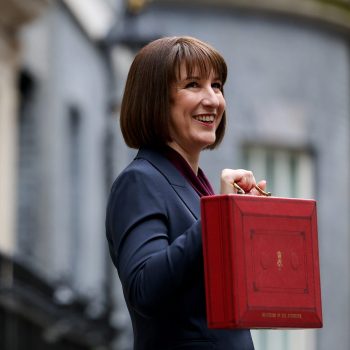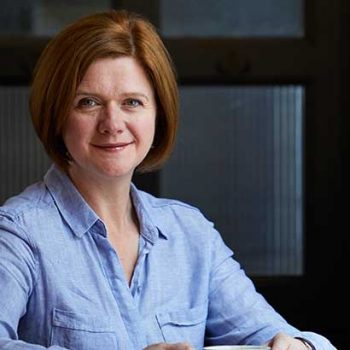UK budget ‘all pain, no gain’ for spirits and on-trade
One UK trade body has described the autumn Budget as ‘a death by a thousand cuts’, in particular the news that alcohol duty will rise again in February 2026.

The Budget was announced earlier today (26 November), with chancellor Rachel Reeves confirming that alcohol duty will stay linked to the Retail Price Index (RPI).
Mark Kent, chief executive of the Scotch Whisky Association (SWA), said the move will put “huge additional pressure on a sector suffering job losses, stalled investment and business closures”.
He continued: “Put simply, the government cannot expect the Scotch whisky sector to just keep delivering growth, both at home and on the world stage, if the conditions which support growth are not nurtured.”
The SWA claims that the 3.65% increase in duty, which took effect in February, reduced spirits revenue by 7% – a loss of £150 million [US$198.5m] to the Treasury.
He added: “Hiking duty today, for the third time in two years, not only limits our sector’s ability to contribute to much-needed economic growth and productivity, but will once again fail to deliver for the public purse and needlessly cost jobs.
“Increasing global and domestic pressures led our industry to ask for duty in our home market to remain unchanged. Not a tax cut, not a handout, simply breathing room for a critical Scottish industry. Government has chosen to ignore those warnings, to the detriment of distillers, of bars and restaurants, our farmers and suppliers, and ultimately of growth.”
Carolyn Harris MP, who leads the All-Party Parliamentary Group (APPG) on spirits, also expressed her disappointment at the government’s decision, and said she will continue to make her case to ministers.
She said: “I set up the APPG on spirits because I have seen, in my own constituency and further afield, that this is a sector with so much potential. Distillers, and the pubs and bars that depend on them, create jobs and opportunity all around the country.”

A ‘sad day’ for distillers
The UK Spirits Alliance (UKSA), which represents 300 distillers and hospitality businesses, also lamented the alcohol duty rise.
Karl Mason, UKSA spokesperson and director of Masons of Yorkshire, said it was a “sad day” for distillers and the on-trade. “Innovative, world-leading distillers are disappearing from communities,” he said. “Three in 10 landlords are scared that they will go bust within a year if costs increase. This Budget will push businesses on the brink over the edge.
“For all that pain, there’s no gain for the chancellor. Successive duty hikes have already cost the Treasury billions of pounds; this third increase will limit the ability for businesses to invest, grow and create much-needed jobs.”
The Office for Budget Responsibility (OBR) published a report calculating the impacts of Reeves’ new statement, in which it predicted that alcohol duty receipts will decline compared with 2025-26.
Miles Beale, chief executive of the Wine and Spirit Trade Association (WSTA), cited the OBR report and said the government had failed to recognise its part in reducing duty receipts.
He said: “This Budget has been dubbed a death by a thousand cuts, and for wine and spirit businesses those cuts run deep.
“The government’s typically disappointing and shortsighted decision to raise alcohol duty yet again will only prolong the doom loop.”
He predicts that as alcohol prices rise, British businesses will suffer and Treasury receipts will continue to fall.
The WSTA calculated that a bottle of 40% ABV Scotch, priced this year at £18, will increase by 39p next year. The increase is caused by both the duty rise and VAT, which is levied on alcohol duty.
The duty rise is likely to hit smaller, independently run businesses harder than those owned by large groups, as argued by William Wemyss, director of Kingsbarns Distillery.

He said: “At Kingsbarns, we are a small, family-run distillery. We invest patiently and locally in our people, in our casks and in crafting the elegant Lowland whisky we are proud to share with visitors from around the world. Each new rise in duty makes it harder for independent distillers like us to plan with confidence or absorb additional costs.”
Wemyss also believes the OBR’s forecast should “prompt careful consideration about the long-term health of a sector that contributes strongly to Scotland’s economy and global reputation”.
He added: “We had hoped for a pause to give businesses the stability to invest for the future. We continue to urge the government to recognise the importance of independent distilleries and to create conditions that support growth, quality and jobs rather than making those ambitions harder to realise.”
Hospitality hits out
The on-trade faced double disappointment today when Reeves not only announced an alcohol duty hike but also failed to provide tangible support for hospitality.
The Night Time Industries Association (NTIA) had been calling for a reduction of VAT for hospitality businesses, a reversal of National Insurance contribution thresholds, and a reform of business rates.
Only the latter was addressed by the Budget.
The NTIA’s CEO Michael Kill described the Budget as a “hammer blow” for the sector. He said: “We are deeply concerned by the scale of direct and indirect tax increases set to hit our sector over the coming months.
“Many venues are already operating on the edge, and we will inevitably see businesses handing back their keys by January, when VAT, quarterly rent payments, and other financial obligations collide. The pressure on both operators and consumers is now completely unsustainable.”

Kate Nicholls, chair of UKHospitality, expressed positivity at the idea of business rates reform. She said: “Bricks-and-mortar hospitality businesses are being taxed out, and they have been penalised by the broken business rates system for far too long.
“Today, the chancellor recognised the importance of hospitality and provided a permanently lower multiplier for hospitality businesses – reforms secured by UKHospitality.”
However, she argued that the 5p discount is only a quarter of the maximum 20p proposed by the government last year. “This is particularly frustrating given changes to business rates valuations will mean that many hospitality businesses’ tax bills will still significantly rise, alongside increases to the minimum wage adding extra cost,” she said.
The managing director of the Scottish Licensed Trade Association (SLTA), Colin Wilkinson, also questioned the details of the business rates reform. “A specific poundage rate of 35p in the pound has been suggested by many organisations, but we understand that any specific reduction may now only be 5p in the pound – not exactly the reform we were all hoping for,” he said.
Minimum wage hike
The government announced a minimum wage increase of 4.1% yesterday (25 November) prior to the Budget, which the NTIA said “may sound positive on the surface”, but will present a “serious challenge”. Kill was particularly concerned by the 8.5% rise for 18- to 20-year-olds.
He added: “Without meaningful support for businesses, this risks devastating consequences for staffing, long-term sustainability, and job opportunities in the very communities the government claims to champion.”
UKHospitality calculated that the increase in minimum wage would cost the sector £1.4 billion.
Nicholls added: “The higher-than-expected increase to the rates for under-21s is worrying for hospitality businesses, who had hoped the government would take a more pragmatic approach to achieving its goal of equalising all wage rates.
“When there are almost a million young people not in employment, education or training, this will put further pressure on already fragile youth employment rates. Given the government’s ambition to help young people back into work, this level of increase is concerning.
“Hospitality is a sector that offers opportunities for all, regardless of experience or background, and is uniquely placed to help tackle youth unemployment. This should be embraced and supported, rather than discouraged.”
Wilkinson of the SLTA added that the on-trade is a “staff-intensive industry” that employs a “large number” of young people. “National minimum wage has increased again and is now 65% more than it was five years ago,” he said, adding that the wage increase will cause a knock-on increase in National Insurance contributions.
“Let’s also not forget staff on higher levels of pay will also be looking to maintain their differential with staff at lower levels of responsibility,” he said.

Nick Gillett, the managing director of Mangrove Global, said the government hasn’t “listened one bit” to the hospitality sector, and “there is precious little to cheer the sector”.
He added: “We all look forward to the look of surprise and disappointment on government faces when employment dips in the sector, the tax take from duty continues to decline and prices rise, fuelling inflation. They have been warned, had it explained numerous times and yet have blindly stumbled on wreaking havoc.”
Chris Gamm, the CEO of Springboard, a charity that helps people find work in hospitality, believes the minimum wage increase will cause a decline in the number of entry-level roles in the sector.
He said: “We also predict the long-term effects of this will mean that in time, there will be a shortage of future managers and leaders… We urge the government to work closely with us and the wider industry to ensure adequate support is put in place to protect jobs, sustain training and development, and safeguard the long-term resilience of this essential sector.”
Related news
Amber Beverage UK welcomes new MD
